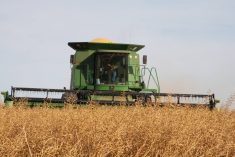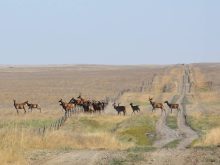Potash giant Nutrien is blaming poor rail service for earlier-than-normal layoffs at two Saskatchewan mines.
Richard Downey, vice-president of investor and corporate relations, said rail shipments have slowed down, particularly through Canadian Pacific Railway.
Canadian National Railway said it is current on orders for Nutrien.
Downey said the company’s six Saskatchewan mines take regular down time depending on inventory levels. Typically, that occurs during the summer.
This week, the company announced its Vanscoy mine would shut down and leave 470 employees out of work for a time.
Read Also

Crop quality looks good this year across Prairies
Crop quality looks real good this year, with the exception of durum.
In May, 140 workers at Allan will also be temporarily laid off.
“This is not uncommon,” Downey said of the layoffs.
“The volumes are higher than last year in terms of total demand for potash and shipments, but I think CP Rail in particular has had some challenges. It’s not just grain.”
He said it was a rough winter with rail challenges and the late spring didn’t help.
The employees will be recalled but Downey couldn’t say when.
“It’s going to depend on spring demand and rail car allocations. We’ll just sort of have to play that by ear.”
He also said the Vanscoy and Allan mines had been running “fairly hard” over the last number of months because of strong global demand. On the Prairies, Manitoba farmers use some potash but most other soils don’t require it.
Contact karen.briere@producer.com
















